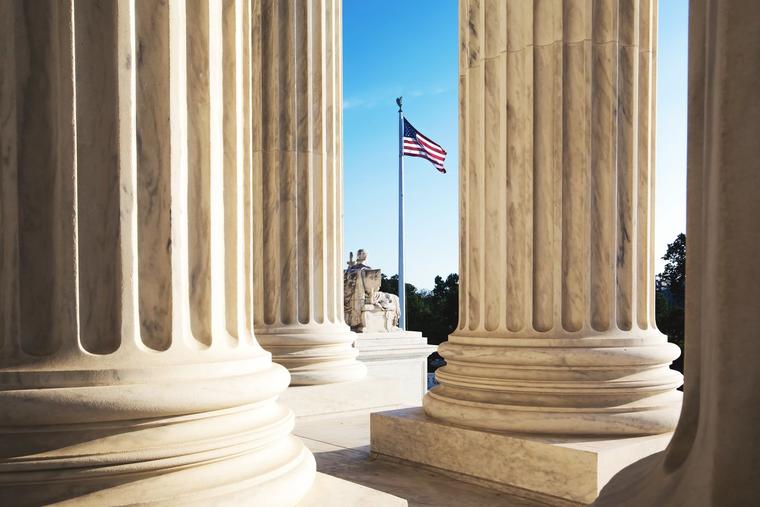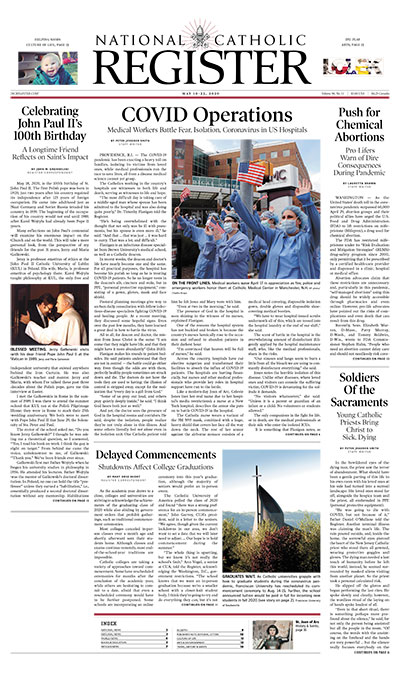Will the Supreme Court Take on David Daleiden’s Case?
A lower court ruled that the pro-life activist is liable for $16 million to cover Planned Parenthood’s security measures and attorney fees when he made public the abortion leader’s practice of profiting off aborted children’s body parts.

As the Supreme Court revs up for a new term, the justices are being asked to tackle this question: Should pro-life activists have to pay multi-million dollar fines for publicizing the fact that Planned Parenthood makes money by selling the body parts of aborted infants?
The court could say as early as the new term’s Oct. 2 starting date whether it will address that issue.
In a friend of the court brief urging the justices to take up the case, the U.S. Conference of Catholic Bishops — joined by the Knights of Columbus, the March for Life, and the Eternal Word Television Network — say lower court rulings imposing $16 million in penalties on the pro-lifers reflect an “all too familiar pattern” of pro-abortion bias by some lower courts. “The pattern is familiar: When abortion is involved, all bets are off,” the groups say.
The present dispute comes to the Supreme Court on appeal from a ruling by the U.S. Court of Appeals for the Ninth Circuit.
Planned Parenthood is the largest abortion provider in the country. Its 2021-2022 annual report, the most recent one available, says that in the previous year the organization and its affiliates were responsible for 374,155 abortions.
The case now before the Supreme Court had its origin in 2010 when a pro-lifer named David Daleiden learned that Planned Parenthood was selling fetal tissue from abortions to laboratories in violation of state and federal law. He and associates established an entity called the Center for Medical Progress and went to work using the methods of investigative journalism to gather evidence. Over the next several years they attended Planned Parenthood trade shows, visited Planned Parenthood facilities and, using concealed cameras, recorded interviews with Planned Parenthood personnel.
Then, beginning in July 2015, they began releasing their videos. Widespread media attention prompted U.S. Senate and House of Representatives investigations. Successful prosecutions followed in California and Arizona and spelled the end of Planned Parenthood affiliates’ status as Medicaid providers in several states.
Planned Parenthood responded with what Daleiden’s brief to the Supreme Court calls a “spending spree” intended to “stem the public relations fallout” and bolster its security measures to prevent more investigations of its activities. Then in January 2016, it filed a 14-count complaint against the Center for Medical Progress accusing it of a “smear campaign” intended to “demonize Planned Parenthood.”
The results, says the Daleiden brief, were district court and the Ninth Circuit Appeals Court rulings — under a federal “anti-racketeering” law — that delivered “a crippling $16 million judgment” against the pro-lifers to cover Planned Parenthood’s security measures and attorney fees and punish Daleiden and the others. The brief asks the Supreme Court to find instead that the pro-lifers’ actions were protected speech under the First Amendment.
The brief by the bishops’ conference and its associates calls the Ninth Circuit court’s decision a “transparent effort to punish pro-life advocates.” It says this poses “a serious threat to expressive organizations” like themselves that could find them liable for expenditures by other groups claiming a need to protect themselves against “speculative future harm.”
The dispute has attracted attention from free speech, whistleblower protection and animal rights advocacy groups that joined in a brief urging the Supreme Court to consider the Planned Parenthood case in view of the potential threat to their own investigative reporting.
There is a real danger here of courts placing a lid on speech offensive to one of their own sacred cows, whether abortion or something else. Here’s hoping the Supreme Court takes a look.












